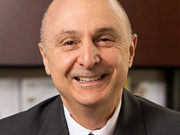Embraces ‘Strong, Independent, Multi-National Accident Investigation Boards’
Lisbon, Portugal, March 15, 2010 — During the 22nd Annual European Aviation Safety Seminar held in Lisbon, Portugal this week, the Flight Safety Foundation embraced recommendations to form a Multidisciplinary Task Force of legal experts from the aviation industry, law enforcement, judicial authorities, and the public to achieve “a balanced approach that is supportive of blameless reporting and sharing of critical aviation safety information, and the proper administration of justice.” The Foundation also called upon governments worldwide to begin pooling resources, expertise, training, and authority better, and to form multi-national, independent air accident investigation boards.
Citing recent criminal cases like the ongoing criminal prosecution of Continental Airlines and several individuals in France in connection with the Concorde July 25, 2000 crash, FSF General Counsel Kenneth Quinn, a partner at the Pillsbury law firm in Washington DC, stated, “Enough is enough. We can no longer stand idly by while prosecutorial abuse of discretion imperils the safety of the traveling public.”
The Foundation called upon an upcoming ICAO ‘High Level Safety Conference’ on March 29–April 1, 2010 in Montreal to convene a group of legal experts ‘to urgently provide better protection of sources of safety information, including protection of witness statements and admission of errors against criminal prosecution, except in the most egregious of cases involving willful misconduct, drug or alcohol abuse, or falsification.’
Taking into account a recent European Commission proposal on October 29, 2009 and a recent meeting of the EC’s Council of Ministers on March 13, 2010 calling for the creation of a ‘Network of National State Investigation Authorities,’ Quinn called the proposal “very well intentioned, but woefully inadequate to meet the urgent problems of disparate investigating capacity and expertise, tensions between safety investigations and judicial authorities, the unclear role of civil aviation authorities in safety investigations, unacceptable weaknesses in implementation of safety recommendations, and lack of common standards on passenger manifest and family assistance.”
“Reliance on voluntary cooperation is recipe for not getting adequate cooperation,” Quinn continued. “’Networks’ represent poor substitutes for clear authority, binding rules, and jurisdictional clarity — industry, victims’ loved ones, and the traveling public deserve clear accountability and transparency.”
Mike Ambrose, Director General, European Regions Airlines Association, immediately endorsed the Foundation’s call for action, stating: “The Commission’s proposal fails to seize an opportunity for major reform, remove the potential for bias, enhance professionalism and expertise in accident investigation, and improve efficiency.”
“In light of increasing attempts by prosecutors to turn accidents into crime scenes, we must protect safety critical data and individuals who might otherwise be unwilling to come forward to admit mistakes,” Ambrose continued.
For media availability for Mr. Quinn or Mr. Ambrose, please contact Emily McGee at mcgee@flightsafety.org or +1 703 577 5331.
###
Flight Safety Foundation is an independent, non-profit, international organization engaged in research, auditing, education, advocacy and publishing to improve aviation safety. The Foundation’s mission is to pursue the continuous improvement of global aviation safety and the prevention of accidents. flightsafety.org
Contact: Emily McGee, Director of Communications, 1-703-739-6700, ext. 126; mcgee@flightsafety.org
